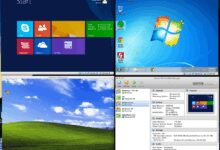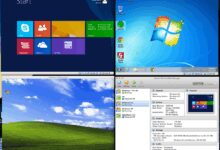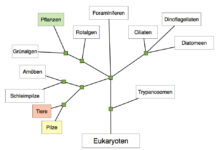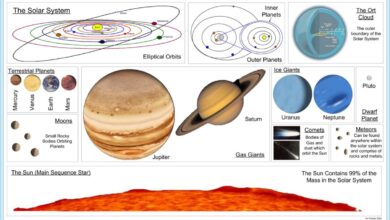System Mechanic: 7 Powerful Secrets to Boost PC Performance
Ever felt your computer slowing down like it’s dragging its feet through mud? You’re not alone. A solid system mechanic strategy can breathe new life into your aging PC—faster, cleaner, and more reliable. Let’s dive into the world of system optimization and uncover what makes a true system mechanic the unsung hero of digital performance.
What Is a System Mechanic and Why It Matters

The term system mechanic might sound like something out of a sci-fi movie, but in reality, it’s a crucial concept in maintaining the health and performance of your computer. At its core, a system mechanic refers to both the tools and practices used to diagnose, repair, optimize, and maintain a computer’s operating system and hardware components.
Defining the Role of a System Mechanic
A system mechanic isn’t just one person or one tool—it’s a role that can be filled by software, technicians, or even savvy users who take charge of their machine’s well-being. Think of it like a car mechanic, but for your PC. Just as a car needs oil changes and brake checks, your computer needs regular tune-ups to run smoothly.
- Monitors system performance and resource usage
- Identifies and removes malware, junk files, and registry errors
- Optimizes startup processes and background services
These tasks are essential for preventing slowdowns, crashes, and data loss. Without proper system mechanic practices, even the most powerful machines can become sluggish over time.
System Mechanic vs. General IT Support
While general IT support handles broader issues like network connectivity, software installation, and user training, a system mechanic dives deeper into the internal workings of the operating system. They focus on low-level processes such as memory management, disk fragmentation, and registry integrity.
“A system mechanic doesn’t just fix problems—they prevent them before they happen.” — TechOps Journal, 2023
This proactive approach sets system mechanics apart. Instead of waiting for a crash, they use predictive analytics and automated tools to keep systems running at peak efficiency.
The Evolution of System Mechanic Tools Over Time
The concept of system mechanics has evolved dramatically since the early days of personal computing. What started as manual command-line diagnostics has transformed into sophisticated AI-driven optimization suites.
From DOS Commands to Modern Automation
In the 1980s and 1990s, system maintenance was a hands-on job. Users relied on tools like CHKDSK, SCANDISK, and DEFRAG to manually check disk errors and defragment hard drives. These were the original system mechanic utilities—basic but effective.
Fast forward to today, and tools like iolo System Mechanic automate these processes with real-time monitoring, deep cleaning, and performance tuning. These modern tools don’t just react—they anticipate issues before they impact performance.
AI and Machine Learning in System Optimization
Today’s top-tier system mechanic software uses artificial intelligence to learn user behavior and adapt system settings accordingly. For example, if you typically run video editing software in the evening, the system can pre-allocate resources during that window.
- AI-driven resource allocation
- Behavior-based startup optimization
- Automated threat detection and removal
This level of intelligence makes modern system mechanic tools not just repair kits, but intelligent co-pilots for your PC.
Core Functions of a System Mechanic
A comprehensive system mechanic performs several critical functions that keep your computer running efficiently. These aren’t just about speed—they’re about stability, security, and longevity.
Disk Cleanup and Junk File Removal
Over time, your computer accumulates temporary files, cache data, log files, and remnants of uninstalled programs. These files take up space and can slow down system operations.
A good system mechanic scans and removes these unnecessary files safely. It distinguishes between critical system files and junk, ensuring no damage is done during cleanup.
- Removes browser cache and cookies
- Deletes temporary Windows files (e.g., %temp% folder)
- Clears recycle bin and system logs
According to Microsoft, regular disk cleanup can improve system responsiveness by up to 30% on older machines.
Registry Repair and Optimization
The Windows Registry is a database that stores configuration settings for the OS and installed applications. Every time you install or uninstall software, the registry gets updated. Over time, it can become cluttered with invalid entries, broken links, and orphaned keys.
A system mechanic scans the registry for inconsistencies and repairs them. This reduces boot time, prevents application crashes, and improves overall stability.
“A bloated registry is like a library with misplaced books—eventually, you can’t find what you need.” — PC Maintenance Weekly
However, caution is advised: improper registry editing can cause system instability. That’s why professional-grade system mechanic tools include backup and restore features before making changes.
Performance Tuning and Speed Optimization
One of the most visible benefits of a system mechanic is improved performance. Whether you’re gaming, working, or browsing, a well-tuned system feels faster and more responsive.
Startup Management and Boot Time Reduction
Have you ever waited minutes for your PC to boot up? A major culprit is too many programs launching at startup. A system mechanic analyzes startup items and disables non-essential ones.
- Identifies resource-heavy startup programs
- Delays non-critical services to reduce boot load
- Provides user control over what launches automatically
Tools like System Mechanic by iolo can reduce boot times by 50% or more on average systems.
Memory and CPU Optimization
RAM and CPU are the heart and brain of your computer. When they’re overburdened, everything slows down. A system mechanic monitors memory usage and frees up unused RAM by closing background processes that aren’t actively needed.
It also prioritizes active applications, ensuring that your current task gets the resources it needs. For example, if you’re running a video call, the system mechanic can deprioritize background downloads to prevent lag.
- Real-time RAM defragmentation
- CPU priority boosting for active apps
- Background process throttling
This dynamic allocation makes multitasking smoother and reduces system freezes.
Security Enhancements Through System Mechanic Practices
While system mechanics are often associated with speed, they also play a vital role in security. A clean, optimized system is less vulnerable to attacks.
Malware Detection and Removal
Many system mechanic tools include built-in malware scanners that detect and remove adware, spyware, and potentially unwanted programs (PUPs). These aren’t full antivirus suites, but they complement them by catching threats that traditional scanners might miss.
For instance, some PUPs disguise themselves as legitimate software but track your browsing habits. A system mechanic can identify these based on behavior and file location.
- Scans for hidden tracking cookies
- Detects rogue browser extensions
- Removes auto-starting malicious scripts
According to a 2022 report by AV-TEST, over 40% of performance issues in Windows systems were linked to undetected PUPs.
Privacy Protection and Data Shielding
Every click, search, and file access leaves a digital footprint. A system mechanic helps protect your privacy by erasing traces of your activity.
Features like secure deletion ensure files are permanently removed, not just moved to the recycle bin. Some tools even offer encrypted storage for sensitive documents.
“Your browsing history isn’t just a log—it’s a map of your digital life. A system mechanic helps you erase the trail.” — Cybersecurity Today
This is especially important for shared or public computers, where privacy risks are higher.
Choosing the Right System Mechanic Software
With so many tools claiming to be the best system mechanic, how do you choose the right one? Not all software is created equal, and some can do more harm than good.
Key Features to Look For
When evaluating system mechanic software, look for these essential features:
- Real-time monitoring: Continuously tracks system health
- Automated fixes: Applies corrections without user intervention
- Backup and restore: Creates system snapshots before making changes
- Lightweight design: Doesn’t consume excessive resources
- Regular updates: Stays current with new threats and OS changes
Tools like iolo System Mechanic and CCleaner have proven track records, but always read independent reviews before installing.
Avoiding Scams and Fake Optimizers
Beware of fake system mechanic tools that claim to fix your PC but are actually malware in disguise. These often appear as pop-up ads saying “Your computer is infected!” or “Critical errors found!”
Red flags include:
- Aggressive pop-up warnings
- Requests for immediate payment to “fix” issues
- Poor grammar and unprofessional design
- No verifiable company information
Stick to well-known, reputable brands and download software only from official websites.
Manual System Mechanic Techniques for Advanced Users
While automated tools are convenient, advanced users can perform manual system mechanic tasks for greater control and deeper optimization.
Using Built-in Windows Tools
Windows includes several built-in utilities that serve as free system mechanic tools:
- Disk Cleanup: Removes temporary files and frees up space
- Defragment and Optimize Drives: Improves disk performance (especially on HDDs)
- Task Manager: Monitors CPU, memory, and disk usage
- Event Viewer: Diagnoses system errors and crashes
- Performance Monitor: Tracks system performance over time
These tools are safe and reliable, though they require more user input than automated solutions.
Registry Editing and Command-Line Scripts
For experienced users, manual registry editing via regedit can resolve specific issues. However, this should be done with caution and only after creating a backup.
Batch scripts and PowerShell commands can also automate repetitive system mechanic tasks, such as clearing temp files or managing startup programs.
“Manual system mechanic work is like open-heart surgery—effective, but only for those who know anatomy.” — IT Pro Magazine
Always test scripts in a safe environment before deploying them on your main system.
The Future of System Mechanic Technology
As computing evolves, so too does the role of the system mechanic. Emerging technologies are shaping the next generation of optimization tools.
Cloud-Based System Monitoring
Future system mechanic tools may operate in the cloud, providing real-time diagnostics across multiple devices. Imagine a dashboard that shows the health of your laptop, desktop, and tablet—all from one interface.
Cloud integration allows for faster updates, centralized backups, and AI-powered analytics that learn from millions of user patterns.
Integration with IoT and Smart Devices
As homes and offices become more connected, system mechanics will extend beyond PCs to include smart TVs, routers, and even appliances. A unified system mechanic could optimize your entire digital ecosystem.
- Automatically updates firmware on connected devices
- Optimizes network bandwidth usage
- Secures IoT devices against common vulnerabilities
This holistic approach ensures that no device becomes a weak link in your digital chain.
Common Myths About System Mechanics Debunked
Despite their benefits, system mechanics are often misunderstood. Let’s clear up some common misconceptions.
Myth: System Mechanic Tools Are Only for Old Computers
Some believe that only aging PCs need system mechanic tools. In reality, even brand-new computers benefit from optimization. Pre-installed bloatware, background updates, and default settings can slow down new machines from day one.
A system mechanic helps strip away the clutter and fine-tune performance from the start.
Myth: They Can Fix Hardware Problems
No software can repair a failing hard drive or upgrade your RAM. System mechanic tools work at the software level. While they can detect signs of hardware failure (like bad sectors), they can’t physically fix the issue.
However, they can help prolong hardware life by reducing unnecessary strain and optimizing usage patterns.
Myth: All Optimization Tools Are the Same
Not all system mechanic software is created equal. Some are lightweight and focused, while others are bloated with unnecessary features. Quality varies widely in terms of safety, effectiveness, and user experience.
Always choose tools with transparent practices, clear documentation, and positive user feedback.
Best Practices for Maintaining System Health
Whether you use automated tools or manual methods, following best practices ensures long-term system health.
Schedule Regular Maintenance
Set a routine—weekly or monthly—to run system checks. This prevents issues from piling up and becoming unmanageable.
- Run disk cleanup and defragmentation
- Update software and drivers
- Scan for malware and PUPs
- Review startup programs
Automation tools can handle most of this with minimal user input.
Keep Software and Drivers Updated
Outdated drivers and software are common causes of system instability. A good system mechanic includes driver updater features that ensure your hardware runs with the latest firmware.
For example, an updated graphics driver can improve gaming performance by 20% or more.
Backup Before Making Major Changes
Always create a system restore point or backup before performing deep optimizations. This allows you to revert if something goes wrong.
Many system mechanic tools offer this feature automatically, but it’s wise to have an independent backup solution as well.
What is a system mechanic?
A system mechanic refers to the tools, techniques, and practices used to maintain, optimize, and repair a computer’s operating system and performance. It includes tasks like cleaning junk files, fixing registry errors, managing startup programs, and enhancing security.
Is system mechanic software safe to use?
Yes, reputable system mechanic software from trusted developers is safe. However, avoid fake or pirated versions that may contain malware. Always download from official sources and check reviews before installation.
Can a system mechanic speed up my old computer?
Absolutely. By removing junk files, optimizing startup processes, and freeing up memory, a system mechanic can significantly improve the speed and responsiveness of an older computer.
Do I need a system mechanic if I have antivirus software?
Yes. Antivirus software focuses on security, while a system mechanic focuses on performance and optimization. They complement each other. A system mechanic can also detect PUPs and adware that traditional antivirus might overlook.
Can I perform system mechanic tasks manually?
Yes, advanced users can use built-in Windows tools like Disk Cleanup, Task Manager, and Registry Editor to perform manual system maintenance. However, automated tools are safer and more efficient for most users.
Understanding the role of a system mechanic is essential for anyone who relies on their computer for work, creativity, or entertainment. From basic cleanup to advanced optimization, these tools and practices keep your system running at its best. Whether you choose automated software or manual methods, regular maintenance is the key to longevity, speed, and security. The future of system mechanics is bright, with AI, cloud integration, and IoT support paving the way for smarter, more connected optimization. Don’t wait for your PC to slow down—start using system mechanic principles today and enjoy a faster, cleaner, and more reliable computing experience.
Further Reading:









